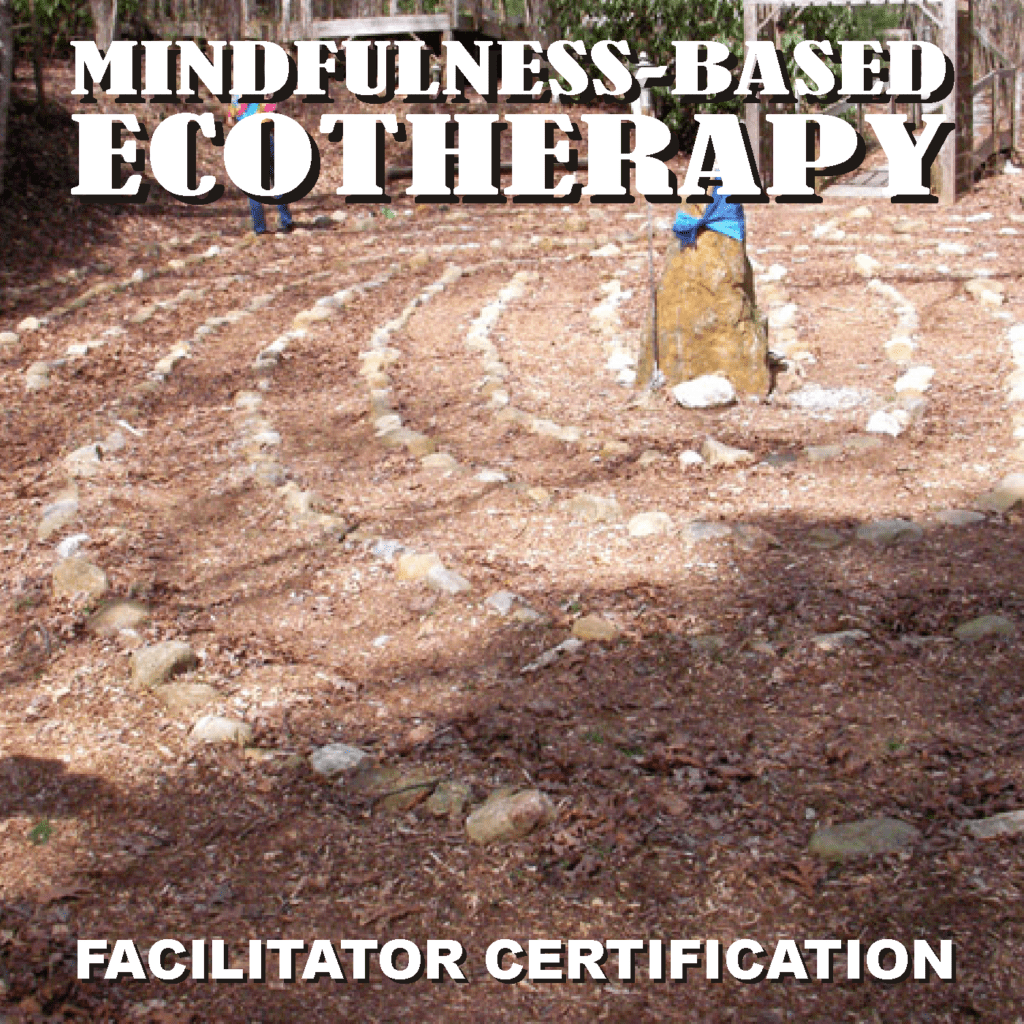
Table of Contents
Grief is a profound and often disorienting human experience. When mourning a loss, people may feel overwhelmed by thoughts, emotions, and memories that seem impossible to contain. While traditional support systems such as therapy, support groups, or conversations with friends and family are valuable, silence and solitude in nature offer a unique avenue for processing grief. Silent retreats provide space to pause, reflect, and reconnect with both the natural world and one’s inner life. At the Mindful Ecotherapy Center, we recognize the transformative potential of these retreats for mourning, healing, and self-discovery.
The Concept of Silent Retreats
A silent retreat is a dedicated period during which people abstain from speaking and minimize external distractions to focus inward. The practice is not about isolation for its own sake, but about creating a container for deep reflection, emotional processing, and mindful awareness. When conducted in natural settings—forests, mountains, riversides, or gardens—the benefits of silence are amplified by the restorative qualities of nature. These retreats allow people to experience grief in a focused, contemplative environment, offering both structure and freedom for emotional exploration.
Why Silence Matters in Mourning
Silence holds a unique power in grief work. Many people experiencing loss find that grief manifests as mental noise: a swirl of memories, regrets, “what ifs,” and emotional turbulence. The act of stepping into silence through silent retreats provides relief from this internal chatter. It creates a pause in which feelings can surface naturally, without being rushed or suppressed.
In silence, people can notice the subtle shifts in their body, breath, and thoughts. This embodied awareness allows grief to be experienced more fully and compassionately. Often, the simple act of being still and present with oneself in a natural setting offers clarity and insight that verbal expression alone cannot provide.
Nature as a Healing Context
The setting of a silent retreat plays a critical role in its effectiveness. Nature inherently soothes the nervous system, reduces stress, and fosters emotional regulation. Sunlight filtering through leaves, the sound of birdsong, or the gentle flow of a stream can ground attention and create a sense of calm. Being in nature reminds people of the broader cycles of life—growth, decay, dormancy, and renewal—mirroring the rhythm of grief itself.
Natural environments also provide symbolic mirrors for mourning. A fallen leaf on a forest path, a river continuing to flow, or the steady rise and fall of tree branches in the wind can reflect the impermanence of life, the inevitability of change, and the potential for renewal. Observing these patterns mindfully can help people reconcile the reality of loss with the enduring continuity of life.
Mindfulness Practices During Silent Retreats
Silent retreats in nature are enriched by mindfulness practices that guide people through grief and reflection. Some effective techniques include:
- Mindful Breathing – Focusing on the rhythm of the breath anchors attention in the present moment, offering relief from racing thoughts or emotional overwhelm.
- Body Awareness – Paying attention to bodily sensations helps people notice where grief manifests physically, such as tension, heaviness, or tightness, and fosters emotional release.
- Nature Observation – Engaging fully with the environment encourages present-moment awareness. Notice colors, textures, sounds, and movements around you. Observing seasonal changes or subtle patterns in nature can deepen reflection and perspective.
- Walking Meditation – Slow, deliberate movement through natural spaces allows people to integrate body and mind, grounding attention in each step and fostering a contemplative rhythm.
- Reflective Journaling – Even in silent retreats, writing can be a private, nonverbal outlet for processing grief. People may record thoughts, emotions, memories, or insights as they arise, creating a tangible reflection of their inner experience.
Benefits of Silent Nature Retreats for Grief
Silent retreats in nature offer a wide range of emotional, psychological, and spiritual benefits for people coping with loss:
- Deep Emotional Processing – Silence allows grief to surface fully, enabling healing rather than avoidance.
- Clarity and Insight – Removing verbal distractions helps people recognize patterns, emotions, and thoughts with greater clarity.
- Connection to Nature – Immersion in natural environments fosters a sense of belonging and perspective, reminding people that life continues beyond personal loss.
- Mind-Body Integration – Mindfulness practices help align emotional, cognitive, and physical experiences, creating a holistic sense of well-being.
- Ritual and Reflection – Retreats create a structured opportunity for intentional mourning, offering symbolic and practical ways to honor loved ones.
- Resilience and Renewal – Time spent in reflection and observation promotes acceptance, patience, and the capacity to move forward without erasing memory or emotion.
Practical Considerations
People interested in silent retreats should consider the following guidelines:
- Choose a Safe Natural Setting – Select a location that feels comfortable, accessible, and supportive of solitude. Parks, forests, or private gardens can be excellent choices.
- Set Intentions – Clarify the purpose of the retreat, such as processing grief, honoring a loved one, or cultivating mindfulness.
- Start Small – For first-time participants, even a few hours of silence in nature can be beneficial. Gradually extend the duration as comfort and experience grow.
- Minimize Distractions – Silence is most effective when combined with reduced electronic or social interruptions. Leave devices behind or use them minimally for safety or navigation.
- Incorporate Gentle Practices – Include mindful walking, breathing, or journaling to guide attention and structure the retreat.
Conclusion
Silent retreats in nature offer a transformative approach to grief and reflection. By combining solitude, mindfulness, and the restorative qualities of the natural world, people can create a safe container for mourning, emotional processing, and insight. Nature provides both a mirror and a guide, illustrating the cycles of life and offering a sense of perspective, continuity, and hope.
At the Mindful Ecotherapy Center, we encourage people navigating loss to explore silent retreats as a complementary tool for grief work. Whether sitting by a flowing river, observing the patterns of the forest, or simply walking through a quiet garden, the combination of silence, mindfulness, and nature supports profound emotional healing. By immersing oneself in these restorative spaces, people can honor grief, reflect deeply, and cultivate resilience, ultimately finding solace, connection, and renewal in the enduring rhythms of the natural world.
The Mindful Ecotherapy Center on YouTube
Subscribe to the Mindful Ecotherapy Center’s YouTube channel to bring peace, presence, and healing into your daily life. Our videos guide you through mindfulness-based ecotherapy practices, including forest bathing, tree planting rituals, nature meditations, and reflective exercises for grief, stress, and emotional well-being. Whether you’re seeking to reconnect with the natural world, cultivate inner calm, or find restorative tools for personal growth, our content offers practical guidance, inspiration, and community support. Join us to explore the transformative power of nature and mindfulness, and start your journey toward balance, resilience, and deeper connection today!
Share Your Thoughts!
What do you think? Share your thoughts in the comments below! And don’t forget to subscribe to our newsletter!


